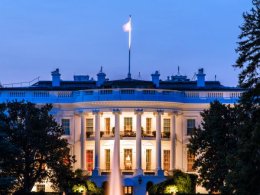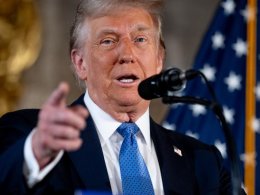By: Micaela Burrow, Daily Caller News Foundation
Filmmakers will now have to assure the Pentagon they will not make any concessions to Beijing in order to distribute their film in China if they hope to benefit from access to U.S. military expertise and resources, Politico reported.
The Department of Defense (DOD) updated rules for working with the film industry on Wednesday, demanding directors pledge they will not allow the Chinese government to force changes to the film, Politico reported based on an obtained copy of the rule. Republican Sen. Ted Cruz inserted a provision in the 2023 defense policy bill seeking to push back at Beijing’s global censorship efforts after an episode in the production of “Top Gun: Maverick” when flags of Taiwan and Japan disappeared from the main character’s jacket for international trailers, allegedly a move to satisfy a Chinese investor.
“Chinese censors” didn’t appreciate the fact that flags of two U.S. partners, where Beijing sees U.S. presence as a threat, appeared on Capt. Pete “Maverick” Mitchell’s flight jacket, Cruz said in a speech at the time. “In return, Hollywood meekly removed the flags.”
The move generated widespread criticism, and in the final version of the film the flags were restored, according to Politico. Investor Tencent reportedly dropped its stake in the film as well.
“What does it say to the world when Maverick is scared of Chinese communists?” Cruz said.
China watchers have become increasingly alarmed at a trend of filmmakers complying with Beijing’s requests to alter or censor content politically unpalatable to the Chinese Communist Party, or risk losing access to the vast Chinese market, Politico reported. When the respective producers declined to remove the Statue of Liberty from “Spider-man: No Way Home” or shorten a same-sex kiss in “Lightyear,” Beijing blocked the films from showing in Chinese theaters.
Film producers work with the Pentagon for access to military bases and U.S. Navy ships as filming locations, as well as the military’s expertise in tactics and weaponry, according to Politico. In return, the Pentagon and service members often get a favorable portrayal.
Now, however, DOD “will not provide production assistance when there is demonstrable evidence that the production has complied or is likely to comply with a demand from the Government of the People’s Republic of China … to censor the content of the project in a material manner to advance the national interest of the People’s Republic of China,” the document reads, according to Politico.
Filmmakers will have to report in writing any censorship demand from China, “including the terms of such demand, and whether the project has complied or is likely to comply,” the rule states, according to the outlet.
DOD will also consider “verifiable information” from individuals not directly connected to the film’s production that might indicate the filmmakers will cave on a demand.
“The Chinese Communist Party spends billions on propaganda and censorship,” Cruz told Politico in response to the new rule. “This new guidance — implementing the legislation I authored in the SCRIPT Act — will force studios to choose one or the other, and I’m cautiously optimistic that they’ll make the right choice and reject China’s blackmailing.”










